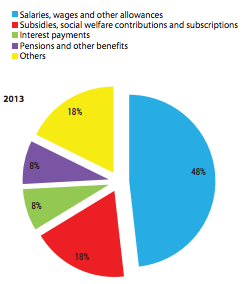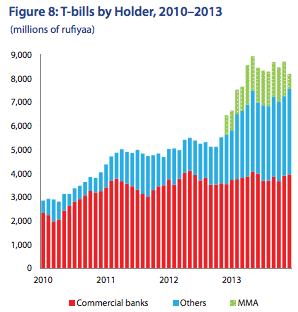Invoking its powers as the highest authority for administration of justice, the Supreme Court has today ordered state prosecutors to return to work “without any further excuse.”
Lawyers at the Prosecutor General’s (PG) Office have been on strike since acting PG Hussein Shameem’s resignation on May 6, forcing the Criminal Court to cancel all criminal hearings.
However the apex court in a ruling today ordered prosecutors to attend trials, stating “[T]here is no legal basis to allow any actions that violate societal rights and disrupt the peace in a democratic society under sovereign rule, and it is essential that the criminal justice system continues to function, for as long as the Maldivian state continues, to uphold the rule of law and protect state and citizens’ rights.”
The ruling comes a day after prosecutors sent a letter to President Abdulla Yameen expressing concern over lack of accountability mechanisms in the PG’s absence, and disagreeing with the Attorney General’s (AG) opinion that the senior most official in the office must take over the PG’s constitutional obligations.
AG Mohamed Anil had claimed the leadership vacuum had caused a “state of necessity” where extra legal actions committed by the state to restore order could be deemed constitutional.
The Supreme Court concurred with Anil’s advise and added state prosecutors must resume work to ensure the criminal justice system functions without stop under the principle of continuity of government.
However, former AG and President of the Bar Association Husnu Suood said the apex court’s ruling might allow the status quo to continue indefinitely.
“I am saddened the Supreme Court did not allocate a time period in which the president and parliament must appoint a new PG. The way to uphold the constitution, the real solution to this problem, is to appoint a new PG as soon as possible,” he said.
President Yameen has said he is waiting until the new parliament, in which ruling coalition holds a majority, convenes on May 28 to submit a new nominee.
The current Majlis – in recess before the end of its term – rejected the president’s nephew Maumoon Hameed for the position in March.
The Supreme Court had invoked both the state of necessity and continuity of government principles to legalise former President Dr Mohamed Waheed’s decision to stay on as president despite the end of his term on 11 November 2013.
Critics including Drug Court Judge Mahaz Ali have previously claimed the state of necessity argument to be invalid as long as the responsible authorities—president and parliament—are able to carry out their duties.
“A state of necessity is faced only when all legal avenues have been exhausted. In the current situation, the solution is to appoint a new prosecutor general. The current People’s Majlis is not in a situation where it cannot carry out its duties,” wrote the judge on his personal blog.
“The authority that must nominate a candidate [the President] is able to do so. Unless these two parties are in a state in which they cannot carry out their constitutional duties, a state of necessity will not be faced in the prosecutor general’s case.”
State prosecutors’ failure to follow the Supreme Court’s ruling may result in disobedience to order and contempt of court charges.
The Supreme Court in March stripped Elections Commission (EC) President Fuwad Thowfeek and Vice President Ahmed Fayaz of their membership for alleged contempt of court and disobeying the court’s rulings.
The EC was brought to trial under new regulations that allow the Supreme Court to initiate proceedings, prosecute and pass judgment.
Shameem had resigned citing the Criminal Court’s “obstruction” of criminal justice by failing to prosecute foreigners involved in drug trafficking, delaying rulings on drug related offenses and presenting“unreasonable obstacles” in filing cases at the court.

